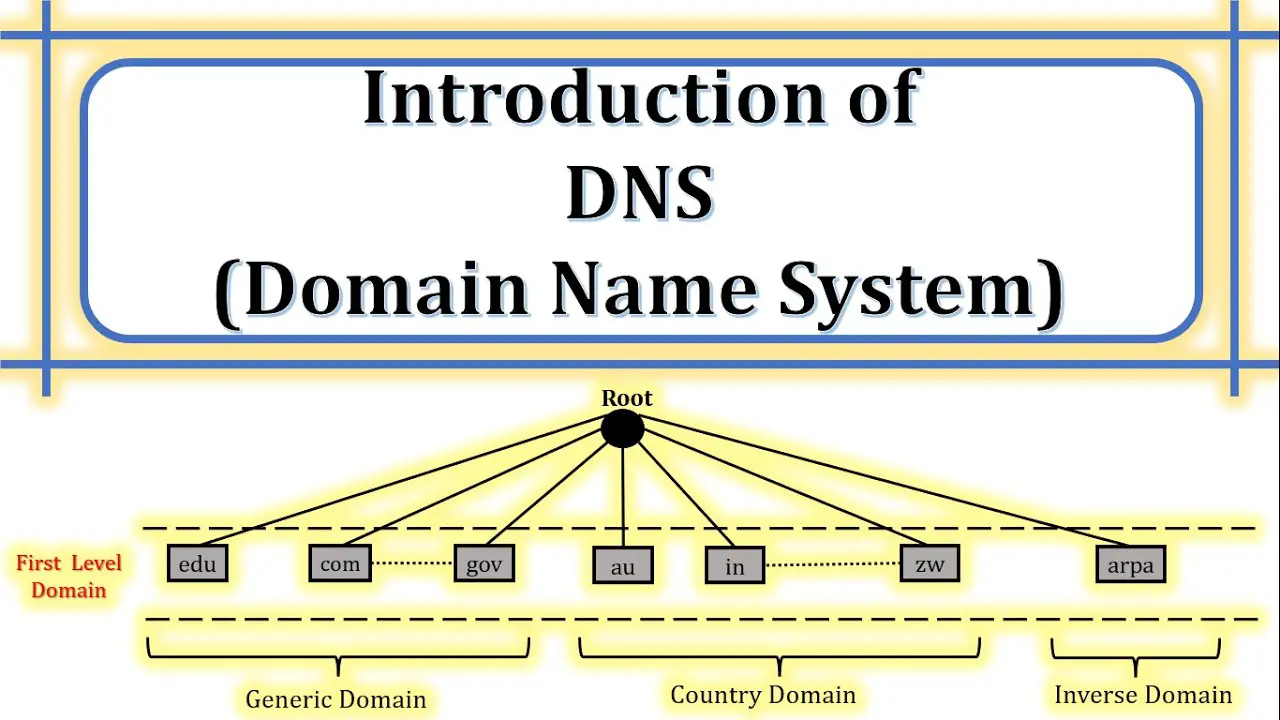Internet privacy concerns refer to the apprehensions and issues surrounding the protection of personal information and online activities in the digital realm. As individuals increasingly engage with online platforms and services, the potential for unauthorized access, data breaches, and surveillance has become a prominent worry. These concerns encompass various aspects, including the collection, storage, and sharing of personal data by corporations, government entities, and other online entities. The evolving landscape of technology and the internet raises questions about the extent to which individuals can maintain control over their private information. Factors such as online tracking, data mining, and the monetization of user data contribute to the unease regarding the confidentiality of one’s digital footprint. Additionally, the proliferation of social media, online shopping, and cloud-based services has expanded the scope of personal data exposure. Government surveillance programs and the potential for cyberattacks further amplify apprehensions about the erosion of online privacy. Addressing internet privacy concerns involves a delicate balance between enabling technological innovation and safeguarding individuals’ right to privacy. Legislative measures, cybersecurity practices, and public awareness campaigns play pivotal roles in mitigating these concerns and fostering a secure and respectful digital environment.
In an era dominated by digital advancements, the internet has become an integral part of our daily lives, revolutionizing the way we communicate, work, and access information. However, this technological leap forward comes at a cost — the erosion of privacy. As we traverse the vast landscape of cyberspace, our every click, search, and interaction leave digital footprints that raise serious concerns about the extent of online privacy. This article delves into the multifaceted dimensions of internet privacy concerns, exploring the challenges, implications, and potential solutions in an age where data has become the new currency.
1. The Evolution of Internet Privacy
To understand the current state of internet privacy, it’s crucial to trace its evolution. In the early days of the internet, privacy concerns were relatively minimal. However, with the proliferation of social media, e-commerce, and interconnected devices, the amount of personal data being generated and shared has skyrocketed. The commodification of user data has given rise to a digital economy where corporations profit from the intimate details of individuals’ lives.
2. Data Breaches and Cybersecurity Threats
One of the most pressing internet privacy concerns revolves around data breaches and cybersecurity threats. High-profile incidents, such as the Equifax breach and the Facebook-Cambridge Analytica scandal, have highlighted the vulnerability of personal information stored online. Hackers, often motivated by financial gain or malicious intent, exploit weak security measures to access sensitive data, leading to identity theft, financial losses, and the compromise of personal privacy.
3. Data Monetization and Profiling
One of the most pressing concerns is the monetization of personal data by tech companies. Social media platforms, search engines, and other online services often rely on targeted advertising, utilizing sophisticated algorithms to analyze user behavior and preferences. While personalized ads can enhance user experience, the process of data profiling raises ethical questions. Users are often unaware of the extent to which their data is being mined, leading to a lack of informed consent.
4. Surveillance Capitalism: Profiting from Personal Data
Surveillance capitalism, a term coined by scholar Shoshana Zuboff, describes the economic system that revolves around the commodification of personal data. Tech giants like Google and Facebook amass vast amounts of user information, employing sophisticated algorithms to analyze behavior and preferences. This data is then used to target individuals with personalized advertisements, creating a lucrative business model built on the erosion of privacy. The ethical implications of this practice have sparked widespread debate, raising questions about the balance between innovation and the protection of individual rights.
5. Government Surveillance and Privacy Erosion
Beyond corporate interests, government surveillance poses a significant threat to internet privacy. Mass surveillance programs, often justified in the name of national security, have come under scrutiny for their potential to infringe on citizens’ rights to privacy. Snowden’s revelations about the NSA’s global surveillance practices shed light on the extent to which governments can access and monitor online communications, leading to a growing concern about the erosion of civil liberties in the digital age.
6. Online Tracking and Behavioral Profiling
Every click, scroll, and search query contributes to the creation of a detailed digital profile of individuals. Online tracking and behavioral profiling, employed by websites and advertisers, raise profound privacy concerns. Users may be unaware of the extent to which their online activities are monitored and used to infer personal preferences, habits, and even psychological traits. This not only invades individual privacy but also opens the door to manipulative practices that exploit this knowledge for financial gain.
7. Internet of Things (IoT) and Smart Devices
The proliferation of Internet of Things (IoT) devices adds another layer of complexity to internet privacy concerns. Smart homes, wearable devices, and connected appliances constantly collect and transmit data about users’ daily lives. While these devices offer convenience and efficiency, they also create potential vulnerabilities that can be exploited by malicious actors. The need for robust security measures to protect the privacy of individuals in a hyper-connected world becomes increasingly apparent.
8. Privacy Legislation and Regulatory Landscape
As the challenges to internet privacy mount, governments around the world are grappling with the need for regulatory frameworks to protect individuals. Initiatives such as the General Data Protection Regulation (GDPR) in the European Union and the California Consumer Privacy Act (CCPA) in the United States aim to empower users with greater control over their personal data. However, the effectiveness of such regulations and the need for a harmonized global approach remain subjects of ongoing debate.
9. Privacy-Focused Technologies: A Beacon of Hope
Amidst the concerns surrounding internet privacy, a wave of privacy-focused technologies is emerging. From decentralized technologies like blockchain to encrypted communication tools, these innovations aim to empower users with greater control over their data. Privacy-centric browsers, search engines, and messaging apps are gaining popularity as individuals seek alternatives that prioritize user privacy over profit.
10. Educating Users: The First Line of Defense
Empowering users with knowledge about internet privacy is crucial in navigating the digital landscape responsibly. Educational initiatives, both at the individual and institutional levels, can enhance awareness about the risks and best practices for safeguarding personal information. Understanding the implications of online activities and making informed choices are essential steps in reclaiming control over one’s digital footprint.
11. General Data Protection Regulation (GDPR)
The European Union’s GDPR, implemented in 2018, is one of the most comprehensive data protection regulations globally. It grants users greater control over their personal data, requiring companies to obtain explicit consent for data processing, provide transparent privacy policies, and allow users to request the deletion of their information. GDPR’s impact extends beyond the EU, influencing global data protection standards.
12. California Consumer Privacy Act (CCPA)
In the United States, the CCPA represents a significant step towards enhancing consumer privacy rights. Enacted in 2020, it empowers California residents with the right to know what personal information is collected, request its deletion, and opt-out of the sale of their data. The CCPA’s influence has spurred discussions about the need for a federal privacy law in the U.S.
13. Targeted Advertising and the Price of Personalization
While personalized ads may enhance the online shopping experience, the methods employed to achieve this level of customization often encroach upon user privacy. Tracking cookies, browser fingerprinting, and location data are just a few of the tools used by advertisers to create targeted campaigns. This level of intrusion raises ethical concerns about the commodification of personal information and the need for transparent advertising practices that prioritize user consent and data protection.
14. Government Surveillance and National Security
The line between safeguarding national security and infringing on individual privacy is a contentious one. Governments around the world employ sophisticated surveillance technologies to monitor citizens and combat threats. However, the revelation of mass surveillance programs, such as PRISM, has sparked debates about the balance between security measures and civil liberties. Striking a harmonious equilibrium requires robust legal frameworks, oversight mechanisms, and public discourse.
15. Internet Service Providers and the Battle for Net Neutrality
The role of Internet Service Providers (ISPs) in monitoring and controlling user data has become a focal point in the privacy debate. With the repeal of net neutrality regulations in some regions, concerns arise about ISPs exploiting their position to manipulate internet traffic, prioritize certain services, or even sell user data to the highest bidder. Restoring and strengthening net neutrality regulations is crucial in maintaining a level playing field and safeguarding user privacy.
16. The Future of Internet Privacy: Challenges and Opportunities
Looking ahead, the future of internet privacy is at a crossroads. As technology continues to advance, the challenges to privacy will likely evolve in tandem. Balancing innovation with the protection of individual rights requires a collaborative effort from governments, tech companies, and users alike. The development of ethical standards, increased transparency, and user-centric design principles will play a pivotal role in shaping a future where privacy is not sacrificed at the altar of progress.
Internet privacy concerns have become a defining issue of our digital age. The intricate web of challenges, from data breaches and surveillance capitalism to government monitoring and IoT vulnerabilities, demands a multifaceted approach to safeguarding individual rights. As we navigate the complex terrain of the online world, it is imperative to strike a balance between technological innovation and the protection of privacy, ensuring that the benefits of the digital era are not overshadowed by the erosion of our most fundamental rights.
Conclusion
The escalating concerns surrounding internet privacy underscore the imperative for comprehensive and adaptive regulatory frameworks to safeguard individuals in the digital age. The pervasive collection, utilization, and monetization of personal data by online entities have exposed users to unprecedented vulnerabilities, necessitating a nuanced approach to balance technological advancements with fundamental rights. The increasing frequency of data breaches and unauthorized access underscore the urgency in addressing gaps in cybersecurity protocols and enforcing stringent measures against malicious actors. Moreover, the evolving landscape of emerging technologies, such as artificial intelligence and the Internet of Things, amplifies the intricacies of privacy challenges. As society becomes more interconnected, policymakers, industry stakeholders, and users must collaboratively navigate the delicate equilibrium between innovation and privacy protection. User education and empowerment also emerge as pivotal components in fostering a privacy-conscious culture, encouraging individuals to make informed decisions about their online presence. In this era of rapid digital transformation, the resolution of internet privacy concerns necessitates a collective effort, blending legal safeguards, technological advancements, and societal awareness. Preserving individual privacy in the digital realm is not merely a regulatory imperative but a societal responsibility that requires continuous vigilance and adaptation to ensure a harmonious coexistence between technology and the fundamental right to privacy.







Leave a Reply